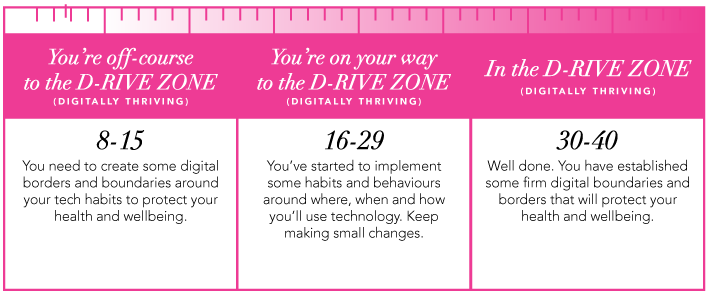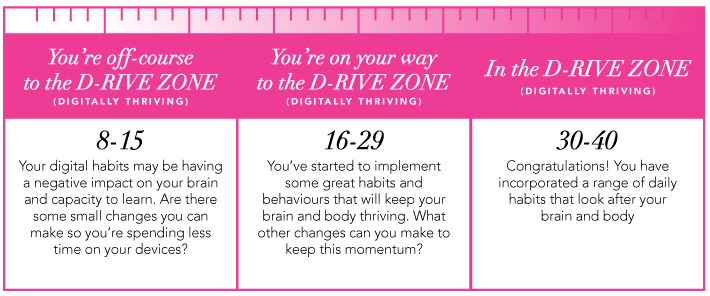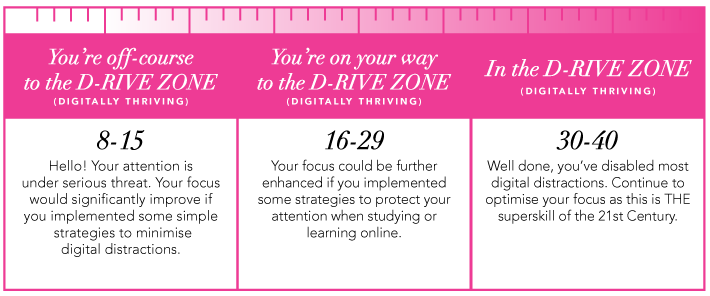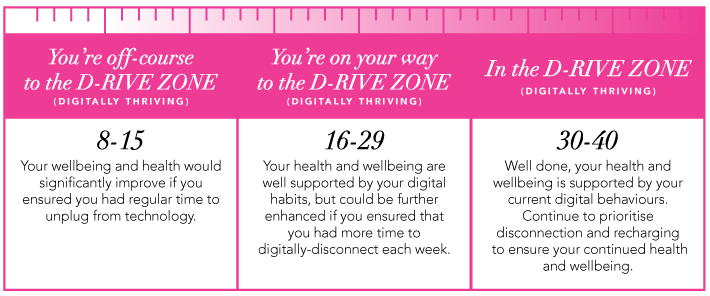Student Digital Wellbeing Assessment
YOUR OVERALL PERFORMANCE:
You Scored:
[URLParam param='total']
Let's break it down:
YOUR OVERALL PERFORMANCE:
You Scored:
[URLParam param='total']
If you scored 31-42:
You are
UNAWARE

Your answers indicate that you are unaware about how detrimental your digital habits may be...
in terms of your physical health and mental wellbeing and ability to focus and avoid distractions. Can you commit to one small micro-habit that you can implement this week? Over time build on new habits.
If you scored 43-63:
You are
AWARE

You’re noticing that your digital habits and behaviours need addressing.
You spend more time than you’d like tethered to technology and there are many skills and strategies you can put in place to better tame your tech habits. Can you commit to some small micro-habits you can implement this week? Over time build on new habits.
If you scored 64-110:
You are
MAKING CHANGES
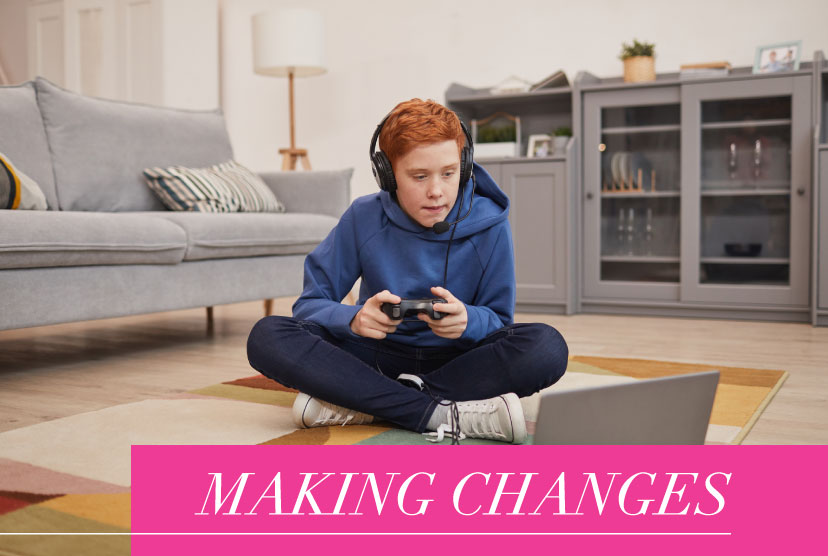
You have some boundaries around how, where and when you use technology.
However, with a couple more changes you could further ensure your physical health, mental wellbeing and focus are supported, not stifled, by your tech habits.
If you scored 111-140:
You are
MAINTAINING CHANGE

You have firm boundaries around how, where and when you use technology.
This ensures that your physical health and mental wellbeing aren’t compromised by technology. If you implement a couple more micro-habits you’ll soon be in the D-RIVE ZONE where you’ll be digitally thriving.
If you scored over 141:
You are in the
D-RIVING ZONE

Congratulations! You have developed some really healthy and helpful digital habits and behaviours.
You have firm boundaries around how, where and when you use technology, suggesting that your ‘tech time’ is supporting your physical health and mental wellbeing. Well done! Keep up these excellent habits: they are serving you well. You are officially DIGITALLY THRIVING.
Not in the D-riving zone?
Here's what you can do now to get back on track.
💻 Set up your digital borders and boundaries around what, where, when, how, for how long you spend online.
🤳 Put your phone, tablet, gaming console or laptop away or out of sight when you've finished using it.
📃 Don't try to make radical changes- instead, make small, gradual changes to your digital habits.
👨👩👧👦 Be accountable- tell your friends or family what your new tech habits will involve so they can (kindly) remind you when you're not following your new habits. (For example, if you want to switch your phone off at 8pm, but you're still messaging friends at 10pm, your friends can remind you of your 'digital curfew').
🛌 Notice how you feel after you've implemented some new tech habits (For example, maybe you'll switch off devices 60 minutes before you go to sleep and might see an improvement in your sleep, mood, or focus). This will encourage to keep making shifts.
🗓️ Remember, that habits and new behaviours take time to stick. If you revert to your old habits, miss a couple of days with your new habit, don't give up and don't abandon your plan.


